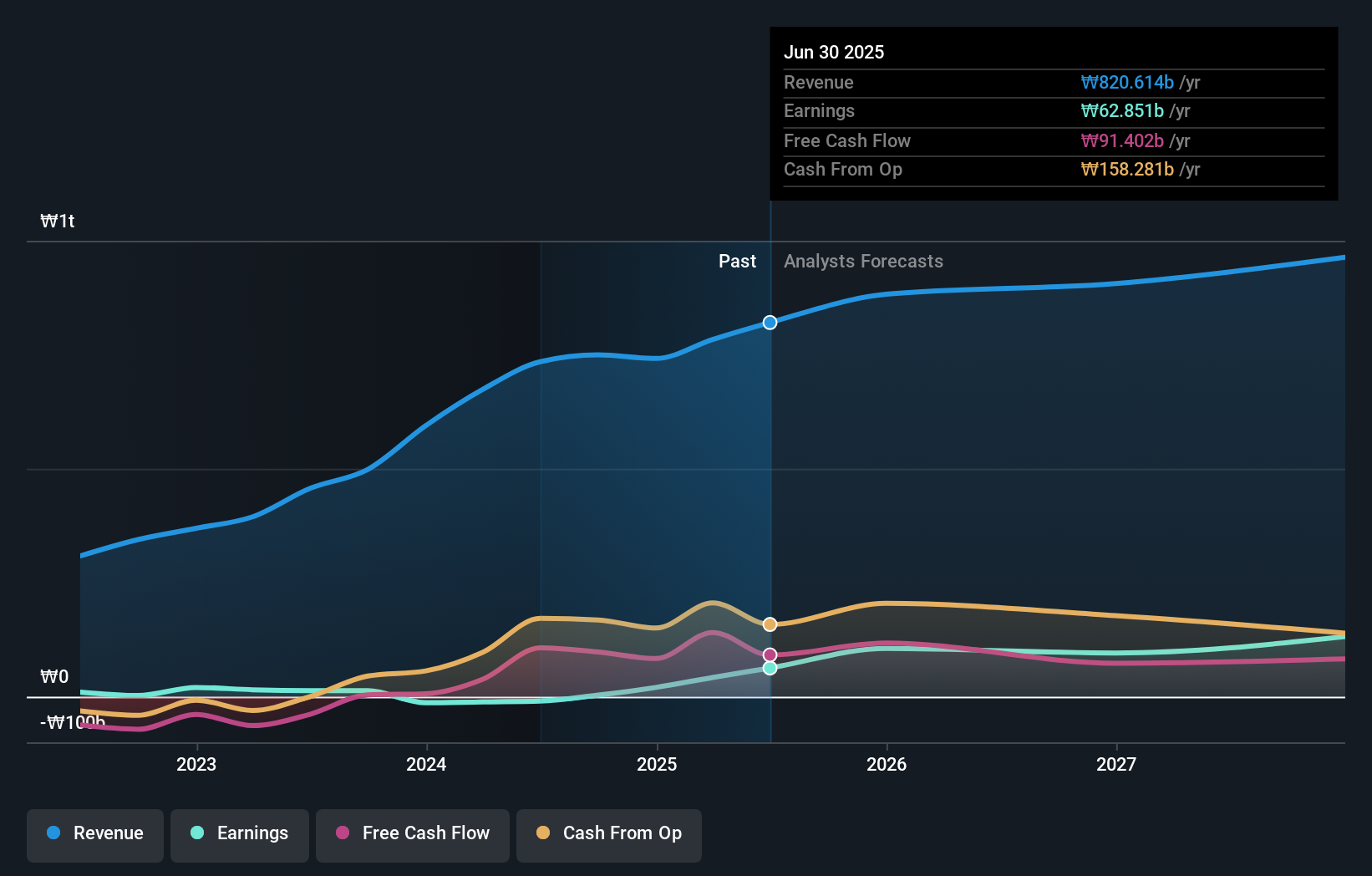- South Korea
- /
- Chemicals
- /
- KOSE:A017960
Individual investors invested in Hankuk Carbon Co., Ltd. (KRX:017960) copped the brunt of last week's ₩232b market cap decline
Key Insights
- The considerable ownership by individual investors in Hankuk Carbon indicates that they collectively have a greater say in management and business strategy
- A total of 4 investors have a majority stake in the company with 50% ownership
- 35% of Hankuk Carbon is held by insiders
If you want to know who really controls Hankuk Carbon Co., Ltd. (KRX:017960), then you'll have to look at the makeup of its share registry. With 45% stake, individual investors possess the maximum shares in the company. Put another way, the group faces the maximum upside potential (or downside risk).
While insiders, who own 35% shares weren’t spared from last week’s ₩232b market cap drop, individual investors as a group suffered the maximum losses
In the chart below, we zoom in on the different ownership groups of Hankuk Carbon.
Check out our latest analysis for Hankuk Carbon

What Does The Institutional Ownership Tell Us About Hankuk Carbon?
Many institutions measure their performance against an index that approximates the local market. So they usually pay more attention to companies that are included in major indices.
Hankuk Carbon already has institutions on the share registry. Indeed, they own a respectable stake in the company. This suggests some credibility amongst professional investors. But we can't rely on that fact alone since institutions make bad investments sometimes, just like everyone does. If multiple institutions change their view on a stock at the same time, you could see the share price drop fast. It's therefore worth looking at Hankuk Carbon's earnings history below. Of course, the future is what really matters.

Hedge funds don't have many shares in Hankuk Carbon. The company's CEO Moon-Soo Cho is the largest shareholder with 34% of shares outstanding. For context, the second largest shareholder holds about 10% of the shares outstanding, followed by an ownership of 4.1% by the third-largest shareholder.
To make our study more interesting, we found that the top 4 shareholders control more than half of the company which implies that this group has considerable sway over the company's decision-making.
Researching institutional ownership is a good way to gauge and filter a stock's expected performance. The same can be achieved by studying analyst sentiments. There are plenty of analysts covering the stock, so it might be worth seeing what they are forecasting, too.
Insider Ownership Of Hankuk Carbon
The definition of company insiders can be subjective and does vary between jurisdictions. Our data reflects individual insiders, capturing board members at the very least. Company management run the business, but the CEO will answer to the board, even if he or she is a member of it.
I generally consider insider ownership to be a good thing. However, on some occasions it makes it more difficult for other shareholders to hold the board accountable for decisions.
It seems insiders own a significant proportion of Hankuk Carbon Co., Ltd.. Insiders own ₩488b worth of shares in the ₩1.4t company. This may suggest that the founders still own a lot of shares. You can click here to see if they have been buying or selling.
General Public Ownership
The general public-- including retail investors -- own 45% stake in the company, and hence can't easily be ignored. While this size of ownership may not be enough to sway a policy decision in their favour, they can still make a collective impact on company policies.
Next Steps:
It's always worth thinking about the different groups who own shares in a company. But to understand Hankuk Carbon better, we need to consider many other factors. Be aware that Hankuk Carbon is showing 1 warning sign in our investment analysis , you should know about...
But ultimately it is the future, not the past, that will determine how well the owners of this business will do. Therefore we think it advisable to take a look at this free report showing whether analysts are predicting a brighter future.
NB: Figures in this article are calculated using data from the last twelve months, which refer to the 12-month period ending on the last date of the month the financial statement is dated. This may not be consistent with full year annual report figures.
Valuation is complex, but we're here to simplify it.
Discover if Hankuk Carbon might be undervalued or overvalued with our detailed analysis, featuring fair value estimates, potential risks, dividends, insider trades, and its financial condition.
Access Free AnalysisHave feedback on this article? Concerned about the content? Get in touch with us directly. Alternatively, email editorial-team (at) simplywallst.com.
This article by Simply Wall St is general in nature. We provide commentary based on historical data and analyst forecasts only using an unbiased methodology and our articles are not intended to be financial advice. It does not constitute a recommendation to buy or sell any stock, and does not take account of your objectives, or your financial situation. We aim to bring you long-term focused analysis driven by fundamental data. Note that our analysis may not factor in the latest price-sensitive company announcements or qualitative material. Simply Wall St has no position in any stocks mentioned.
About KOSE:A017960
Hankuk Carbon
Produces and sells carbon fiber, synthetic resin, and glass paper related products in South Korea.
Excellent balance sheet and fair value.
Market Insights
Community Narratives



